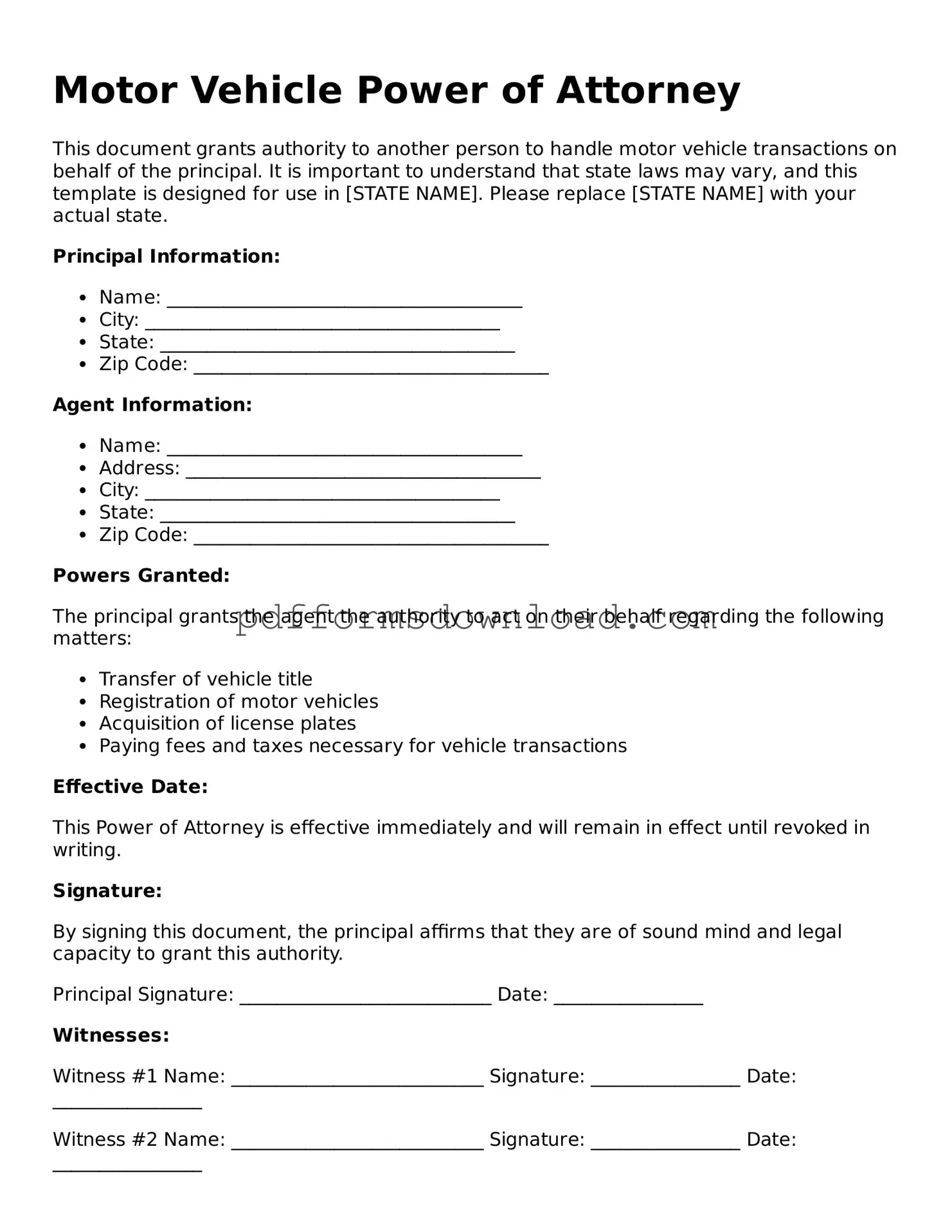What is a Motor Vehicle Power of Attorney form?
A Motor Vehicle Power of Attorney form is a legal document that allows one person, known as the principal, to grant another person, known as the agent, the authority to act on their behalf regarding specific matters related to motor vehicles. This can include tasks such as transferring ownership, registering a vehicle, or handling title issues. Essentially, it empowers the agent to make decisions and perform actions that the principal would normally handle themselves.
Why would someone need a Motor Vehicle Power of Attorney?
There are several reasons why someone might need a Motor Vehicle Power of Attorney. For instance, if a person is unable to be present for a vehicle transaction due to travel, illness, or other commitments, they can designate an agent to act on their behalf. Additionally, this form can be useful in situations where the principal is incapacitated or unable to manage their vehicle-related affairs. It provides a convenient way to ensure that necessary actions can still be taken without delay.
How do I complete a Motor Vehicle Power of Attorney form?
Completing a Motor Vehicle Power of Attorney form typically involves a few straightforward steps. First, you need to obtain the correct form, which can usually be found on your state’s Department of Motor Vehicles (DMV) website or at their office. Next, fill out the required information, including the names and addresses of both the principal and the agent, as well as details about the vehicle in question. Finally, the form must be signed and dated by the principal, and in some states, it may also need to be notarized to be legally binding.
Is a Motor Vehicle Power of Attorney form valid in all states?
While a Motor Vehicle Power of Attorney form is recognized in many states, the specific requirements and validity can vary. Each state has its own laws governing powers of attorney, including how they must be executed and what powers can be granted. Therefore, it is crucial to check your state’s regulations to ensure that the form meets all necessary criteria. Consulting with a legal professional can also help clarify any questions regarding state-specific requirements.
Can I revoke a Motor Vehicle Power of Attorney once it is in effect?
Yes, a Motor Vehicle Power of Attorney can generally be revoked by the principal at any time, as long as they are mentally competent. To revoke the power of attorney, the principal should create a written notice of revocation and provide it to the agent and any relevant parties, such as the DMV. It is advisable to also retrieve any copies of the original form that may have been distributed to ensure that the agent no longer has authority to act on the principal’s behalf.

